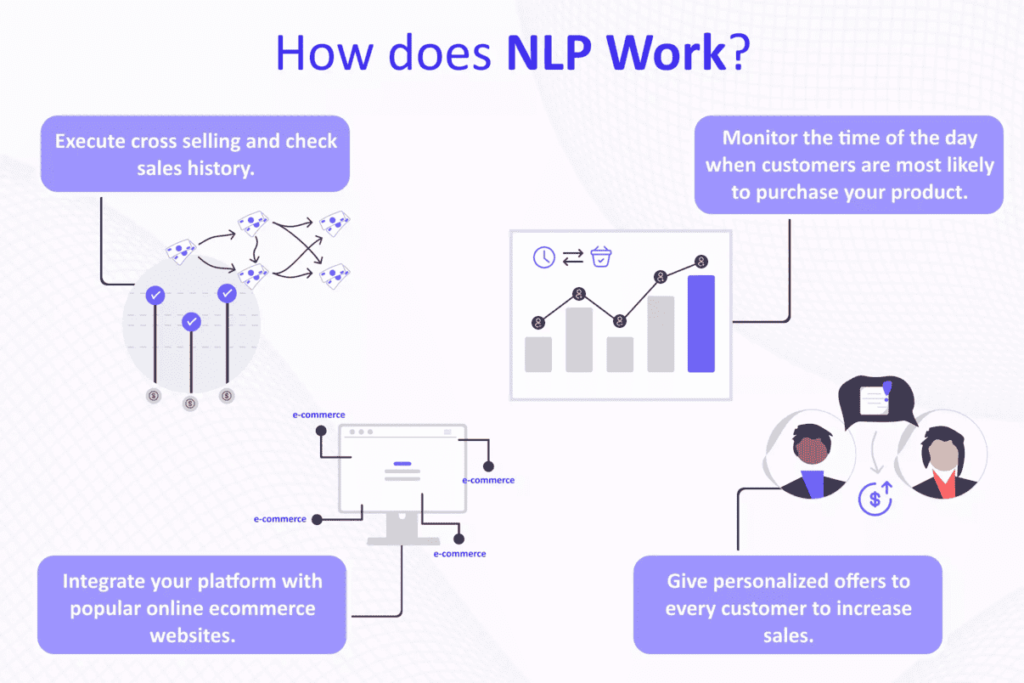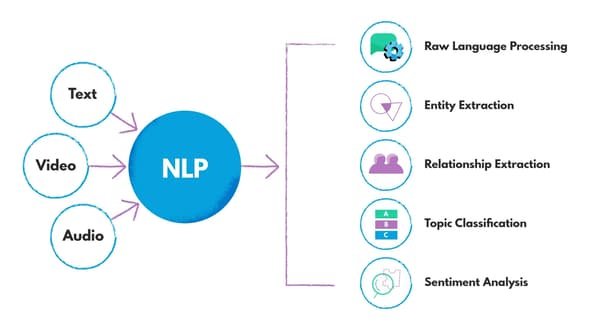
NLP for SEO: What It Is & How to Use It to Optimize Your Content
- By digitalretina
- No Comments
- Post Views: 63

Importance of SEO in Today’s Digital Landscape
Today, business survival depends largely on its ability to remain visible and competitive in the digital world with the help of SEO. Optimizing content so it reaches search engines more effectively is bound to attract more traffic and gain more trust among your target audience. A well-designed Search Engine Optimization strategy is now no longer an option, but a necessity because quality and relevant content are top priorities for search engines; hence, proper alignment with search intent will not only bring about increased visibility but also good user experience, which may make a brand credible and authoritative.
What is Natural Language Processing (NLP) in SEO?
Natural Language Processing (NLP) in Search Engine Optimization allows search engines to understand the context, intent, and meaning behind words, going beyond simple keywords. NLP for SEO focuses on crafting content that resonates with users’ true search intentions, helping search engines deliver more accurate and relevant results. With SEO NLP, businesses can create content that aligns naturally with what users are searching for, enhancing visibility and user satisfaction. By understanding language nuances, NLP enables websites to provide meaningful answers, establishing trust and authority in search engine rankings.
How Does NLP Work?
Natural Language Processing (NLP) plays a transformative role in making SEO more user-centered. By analyzing language patterns and context, NLP for SEO helps search engines understand what users are truly looking for, improving the accuracy of search results. Here’s how NLP works in SEO:

Understanding Context Over Keywords
NLP enables search engines to recognize context, going beyond individual keywords to interpret entire phrases. This helps deliver results that better match a user’s intent, even when keywords aren’t an exact match.
Analyzing Synonyms and Variations
NLP for SEO identifies synonyms and related terms, so content doesn’t need keyword repetition to rank well. By understanding variations of a phrase, search engines provide results that feel more natural and relevant to the user.

Sentiment and Tone Detection
NLP detects the sentiment and tone in content, which helps search engines align results with the emotional tone of the search. For example, it distinguishes whether a search query is seeking positive, neutral, or negative information, leading to a more tailored user experience.
Processing Queries with Voice Search in Mind
With the rise of voice search, NLP helps search engines interpret conversational language, allowing spoken queries to yield more precise results. This adaptation helps SEO strategies stay relevant in an era of hands-free searching.
Handling Multilingual and Complex Queries
NLP helps search engines decode multilingual content and intricate search queries, broadening a site’s reach to a more diverse audience. This is beneficial for businesses targeting multiple languages and regions.
By enabling smarter search engines, NLP for SEO enhances the relevance of content, ensuring it resonates better with users and meets search intent accurately. As a result, businesses can achieve higher search rankings while providing a user-centered experience that aligns with Google’s E-E-A-T standards.
NLP Techniques You Can Use For Your SEO Strategy
Incorporating SEO NLP techniques into your strategy can help enhance content quality, boost rankings, and create a better user experience. Here are some effective NLP techniques for SEO:
Use Synonyms and Related Terms Naturally
Avoid overloading content with exact-match keywords. Use related terms and synonyms naturally to help search engines understand the broader context. This technique improves SEO NLP efforts by making content feel organic and relevant to various search queries.
Match Content Tone with User Intent
Sentiment analysis helps determine the tone of your content. Matching the tone to user intent—whether informational, transactional, or inspirational—boosts relevancy and appeals to readers, improving their experience on your page.
Organize Content into Topic Clusters
Group related topics into clusters to organize content around core themes. This approach aligns with NLP by structuring your content in a way that search engines can easily understand. It boosts authority on particular topics, supporting higher rankings across related keywords.
Question-Answer Formats for User Queries
Structuring content to directly answer common questions helps match users’ search intent. Use question-answer formats to anticipate user needs, improving relevance and helping content appear in featured snippets or “People Also Ask” sections.
Optimize for Voice Search
Voice search queries are often conversational. To align with NLP and voice search, write content that answers natural language questions. Include short, clear responses within the content to improve voice search rankings.
How Does Natural Language Processing Help SEO Performance?
Natural Language Processing (NLP) has revolutionized the way search engines understand and deliver content, making it a game-changer for SEO performance. Here’s how NLP enhances SEO:
Optimize for Voice Search
With Natural Language Processing, search engines now recognize what users truly mean, even if they don’t use exact keywords. NLP analyzes the overall context, which helps in delivering more accurate results, allowing content creators to focus on relevant information instead of keyword stuffing.
Enhances Content Relevance with Synonyms
NLP enables search engines to identify synonyms and related terms, reducing the need for repetitive keywords. This makes content more readable and user-friendly while improving SEO performance, as search engines recognize the natural flow and variety of expressions.
Boosts Voice Search Compatibility
The rise of voice search has made conversational content essential. Natural Language Processing allows search engines to understand these natural, question-based queries, helping sites rank for voice search and making content accessible to users on any device.
Boosts Voice Search Compatibility
NLP detects the tone and sentiment of content, which helps match results with the emotional intent of a search query. This helps users find answers that match their expectations, enhancing user satisfaction and encouraging higher engagement on websites.
digitalretina

Brand Architect's Growth Engineer


Comprehensive Guide to PPC Strategies: How to Make the Most of Your Paid Advertising

